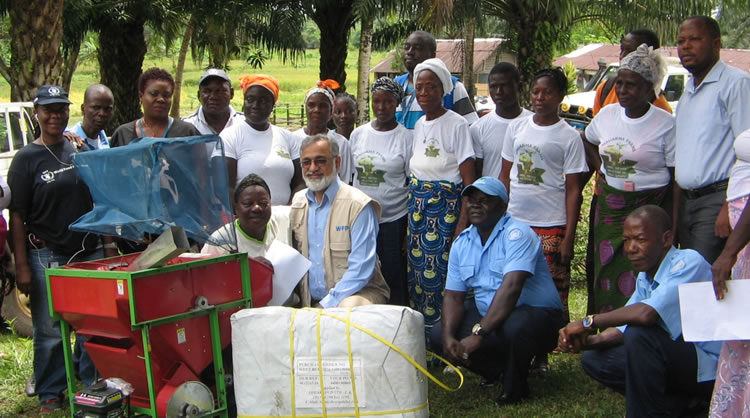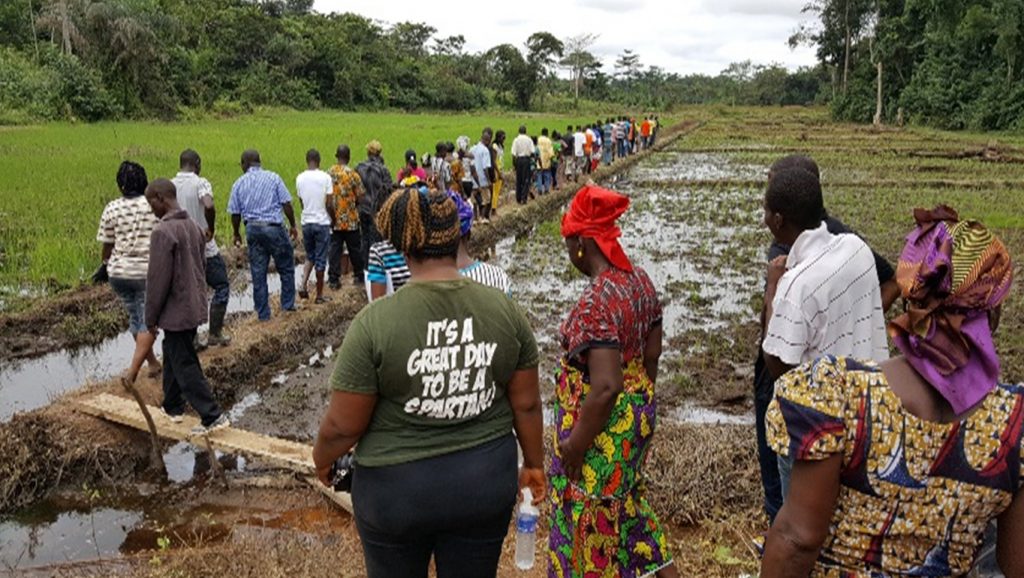The World Food Program (WFP) on last Friday kicked off the Magarma Farm Rice Harvest in Kpekor, rural Montserrado County. The rice harvesting, done in collaboration with the Ministry of Agriculture (MoA), brought together local farmers and partners.
WFP deputy country director Asif Bhutto, said he was impressed with the level of work done over the years by the Magarma group of farmers which operates in Grand Bassa, Bong and Grand Gedeh counties. It is comprised mainly of women that are engaged in the production of rice, vegetables, banana, plantain as well as livestock and poultry.

Bhutto said the WFP family was overwhelmed to see a group of women engaged in intensive farming in Liberia, adding that the role of women in Liberia’s agricultural sector is significant.
Bhutto said that if women continue to play such a role in the next five to six years, Liberia will become self-sufficient in food production.
Following the official launch, director Bhutto, on behalf of WFP, presented a rice thresher to the group. Bhutto lauded the women for their efforts against hunger, saying, “I want to congratulate you for this great achievement in striving for food security in Liberia.”
She said during the war years, a group of eight internally displaced women from central and southeastern Liberia who resided in the Old Matadi Estate and its environs under the name, Self Help Octagon Agricultural Project (SOAP) decided to engage in backyard agriculture activities to supplement their merger food rations. The SOAP produced rice, poultry and assorted vegetables.
WFP is the world’s largest humanitarian agency fighting hunger worldwide, delivering food assistance in emergencies and working with communities to improve nutrition and build resilience.
WFP-Liberia says it has supported over 6,000 smallholder farmers from 1,500 communities representing 12 districts in ten counties under the organization’s 2016-2017 Livelihoods Assets and Market Promotions (LAMP) program funded by the Government of Japan. WFP is still supporting Liberians in the agriculture sector, it confirmed.
It supports and works in collaboration with the Government of Liberia through the MoA together with several locally-based non governmental organizations to assist community-based efforts.
The WFP LAMP program supports community based organizations (CBOs) to rehabilitate, develop and maintain community-based productive assets (lowland swamp structures, community-to-farm access roads and other livelihood connected activities.

